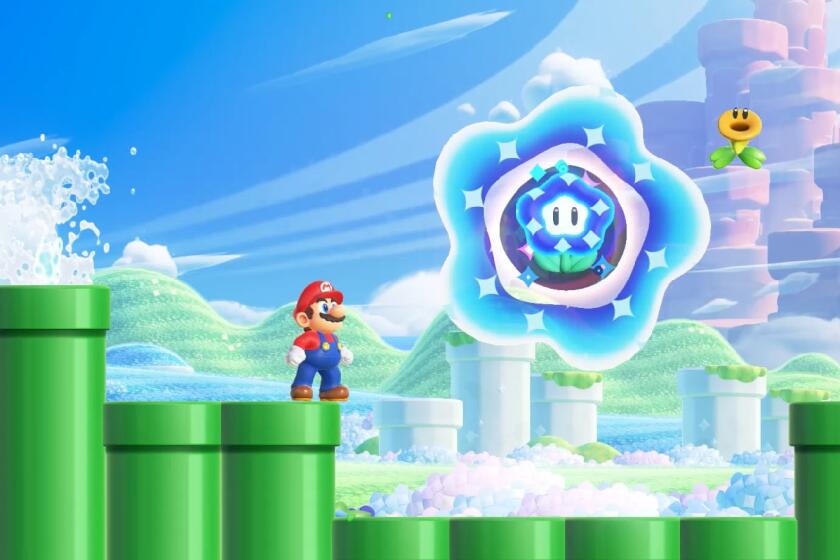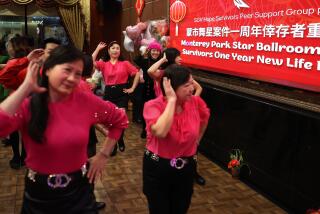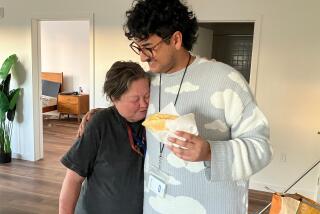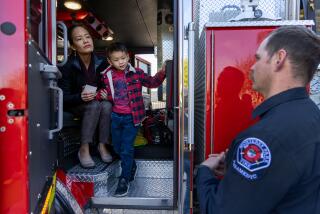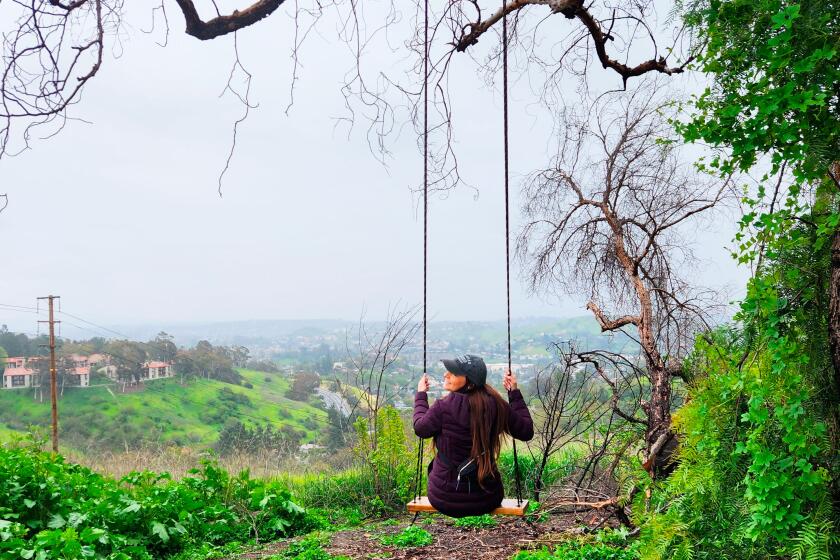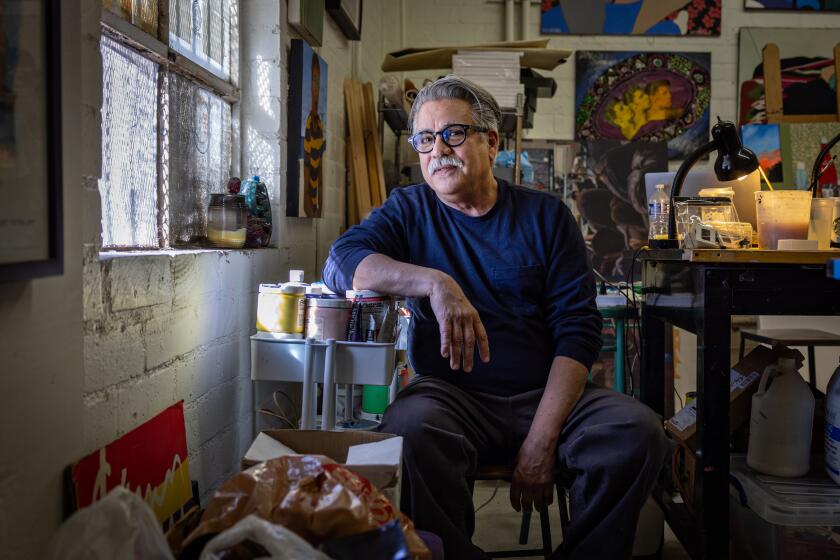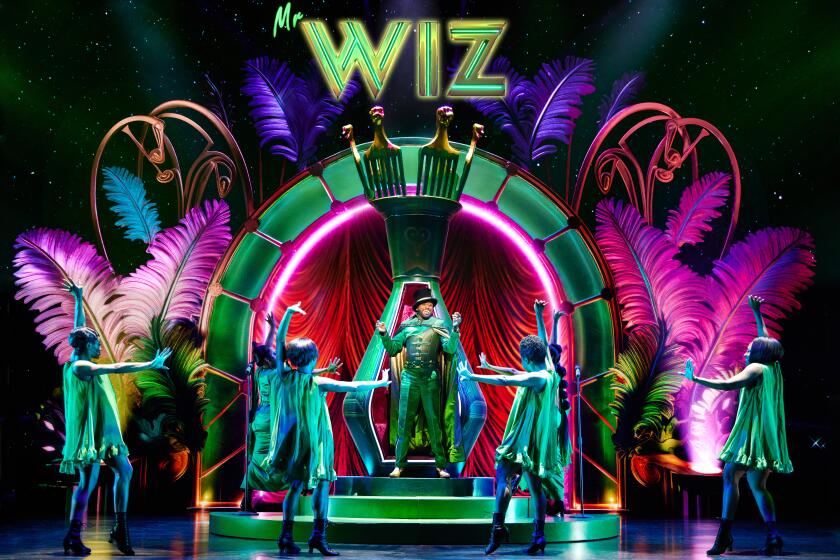A slime museum is coming to L.A. — and it’s bringing the healing power of play
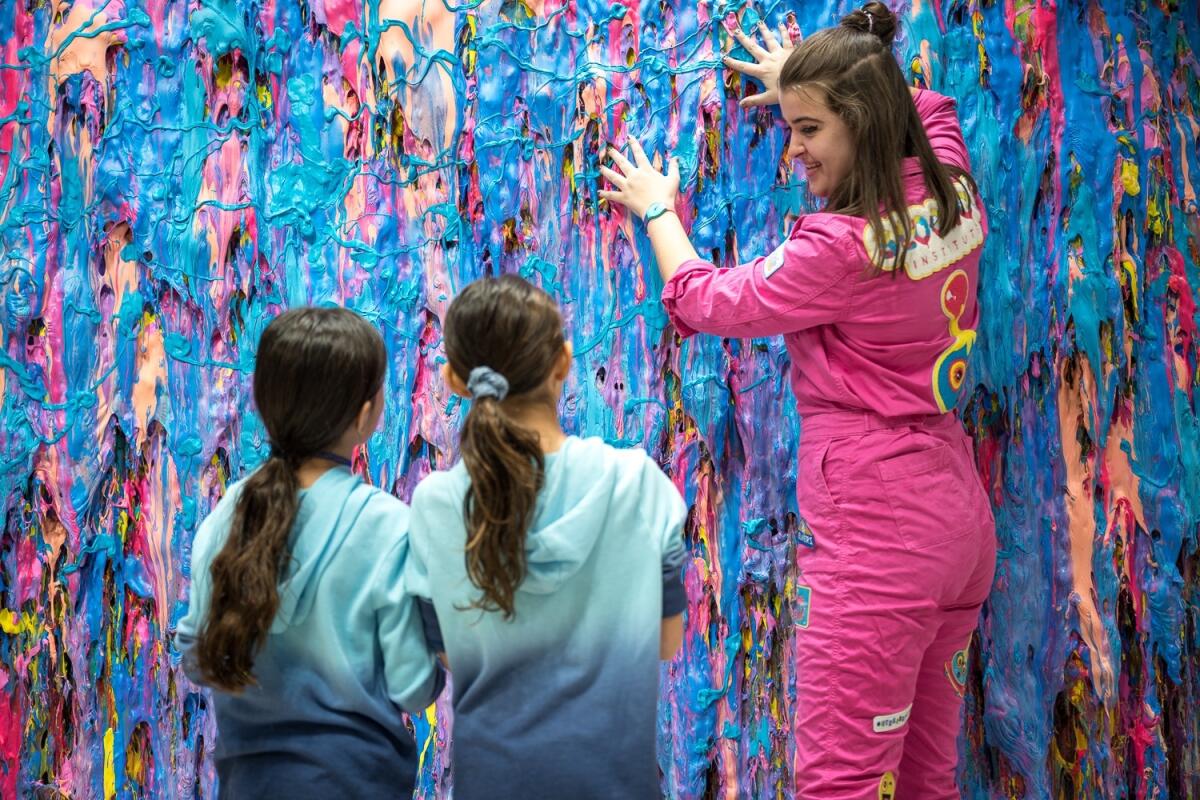
When it comes to healing from grief, there’s often not a simple answer, but there are some recommended standbys. Therapy, of course, is essential, and maintaining close contact with a community also is often recommended.
And maybe, perhaps, a bit of slime?
Such was the case for Karen Robinovitz, one of the co-founders of the Sloomoo Institute, a playful palace dedicated to all things gooey and goopy, where guests can toss slime, mold it, walk on it, get drenched by it and even experience the ASMR benefits of it. Los Angeles soon will be home to the fifth Sloomoo Institute in the U.S. — an outpost on Fairfax Avenue across from the Original Farmers Market opens this summer.
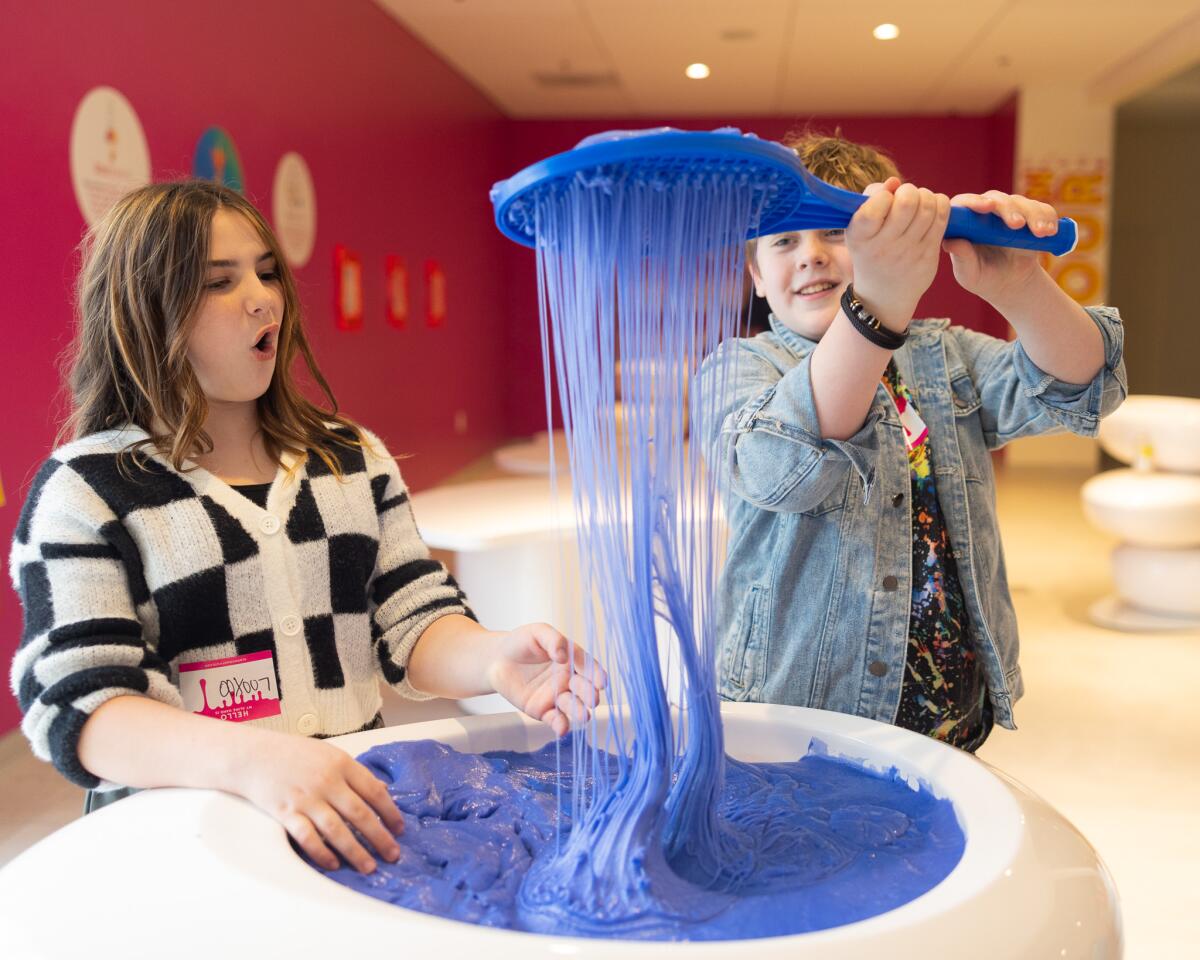
Before the interactive, make-a-mess emporiums became a reality, Robinovitz was struggling to simply get through the day. A survivor of multiple tragedies, Robinovitz seven years ago lost her husband. Months later, a cousin was killed in the 2018 high school shooting in Parkland, Fla. She was living, she says, with “a very deep and dark depression,” talking to someone — a therapist or various support groups — five days a week.
“I was really struggling,” Robinovitz says. “You’re talking about it all the time. In my home, I’m reminded of it in every corner of my house. In my neighborhood, everything reminds you of the person that you lost.”
Healing came in an unexpected place — and a surprising substance. A friend visited with her then-10-year-old daughter, who brought some slime with her for solo playtime while the adults talked. Robinovitz, however, found herself transfixed by the ooze.
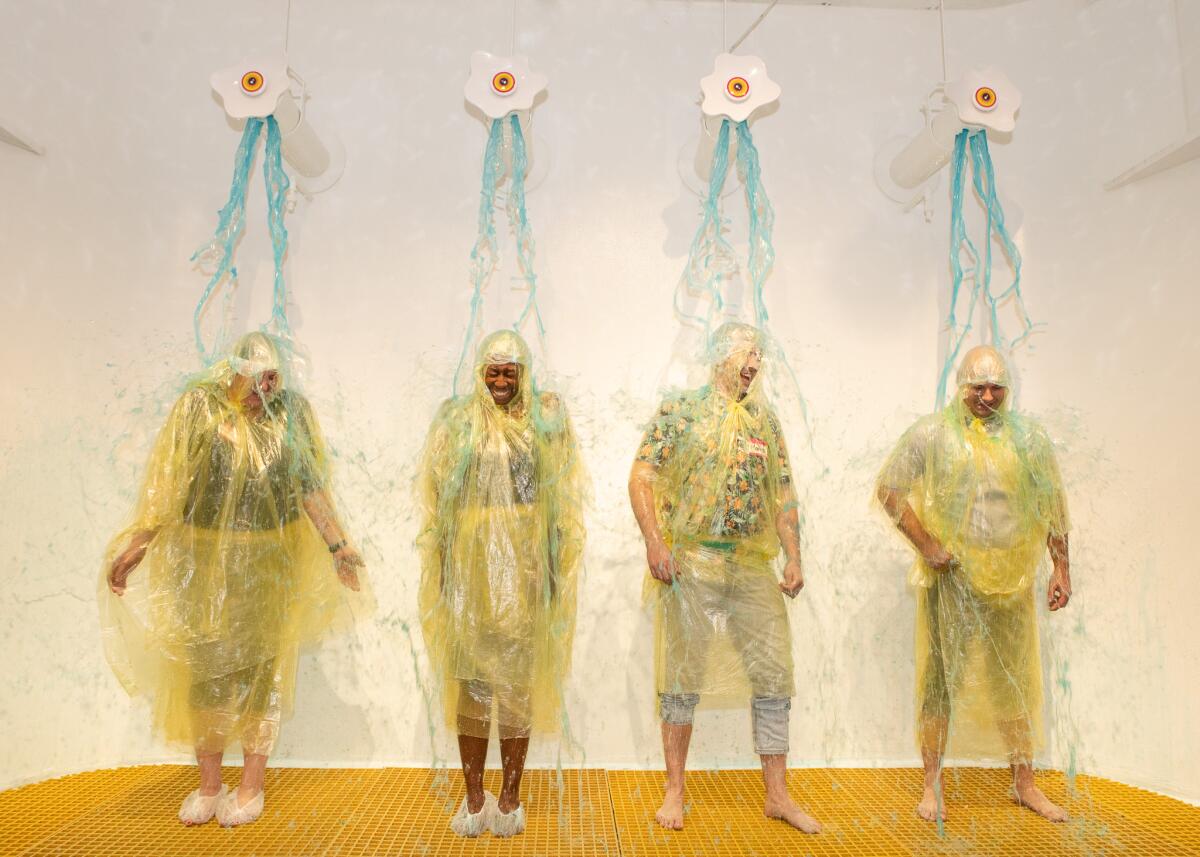
“I sat on the floor with her, and four hours later I realized I was in a complete state of joy,” Robinovitz says. “I had unleashed a part of myself that I never thought I’d see again, which was the inner child. I was happy playing. When they were leaving, I said that this did more for me than all the therapy, all the experts and all the support groups I had been seeing. I said I need to keep this. I became what is known affectionately as an ‘adult slimer.’”
Robinovitz and her longtime friend Sara Schiller created the Sloomoo Institute. The first location launched in late 2019 in New York, and Sloomoo Institutes in Atlanta, Chicago and Houston followed.
Simple strategies for infusing more playfulness, awe and delight into your life.
This is no mere immersive “pop-up,” says Robinovitz, as the two have signed a long-term lease with the intention of being in L.A. to stay — perhaps even tapping into the city’s creative class to expand their slimy mascots and creatures into other media. But for now, their mission is to merge silly with a bit of science, and to explore the importance of play for play’s sake.
A visit to a Sloomoo Institute takes guests through various slime stations, some that are very hands-on and others that resemble a light obstacle course. Some are just goofy, such as a slime slingshot, which allows participants to catapult slime at someone else. (Don’t worry, they’re tucked safely behind plexiglass.) Stations may focus on touch, such as a blindfolded journey through various gloppy textures, while others are directed toward more aural sensations. New for Los Angeles is a sound bath, with art from Randy Polumbo — think reflective surfaces, amorphic shapes and synchronized sound.
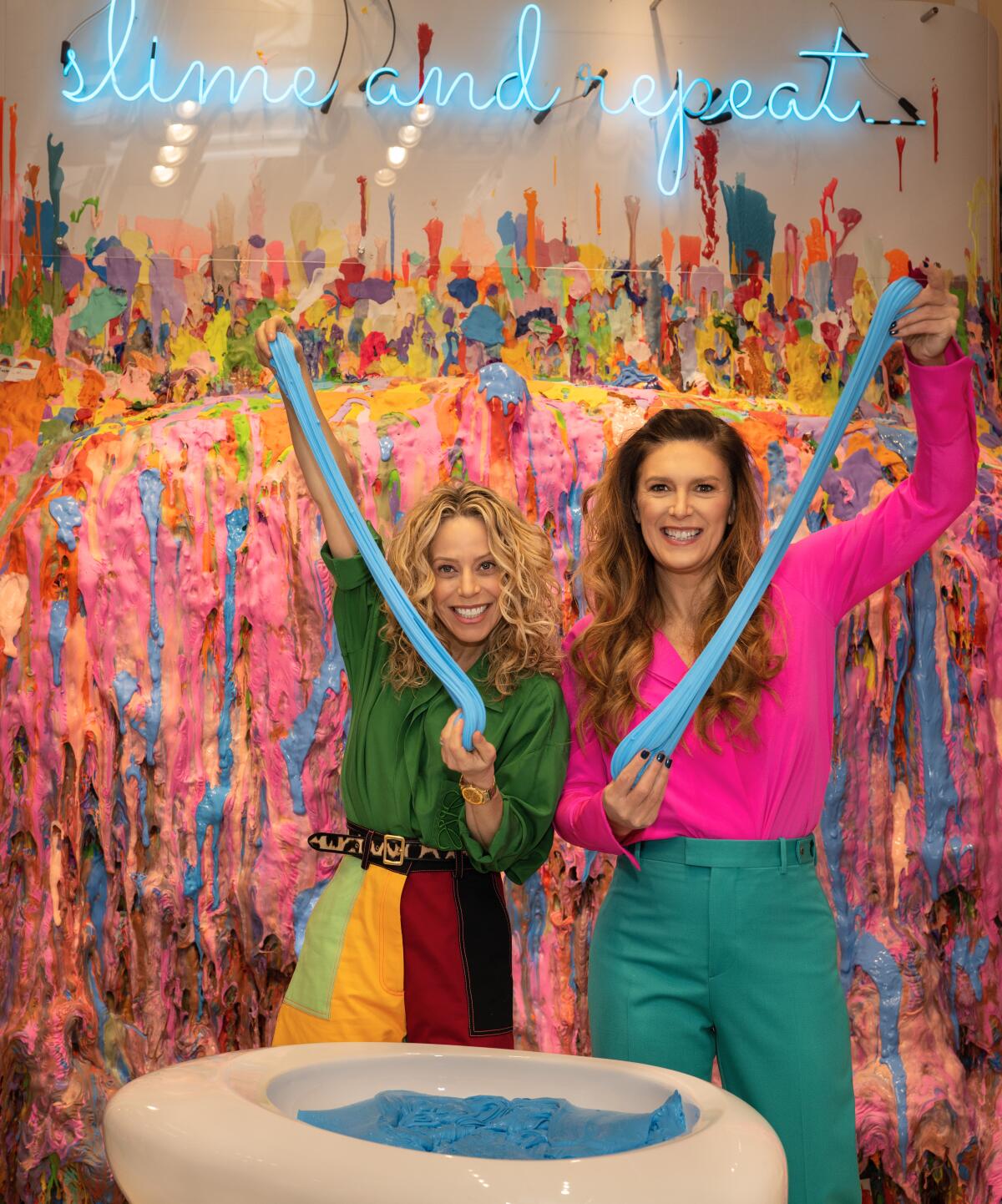
Built into the room will be bowls and meditation-ready balls, which guests will be able to strike to create their own personal symphonies. One can imagine a cacophony of noise on a crowded day, but Robinovitz and Schiller also speak of it as an event space, a potential home for yoga or more relaxing, psychedelic-inspired sound baths. It taps into the Sloomoo Institute’s underlying mission, as the firm collaborates with psychiatrists such as Dr. Judith Joseph to better understand the importance of sensory play.
“Adults, we need this,” says Robinovitz. “I started to talk to a psychiatrist friend of mine because I wanted to understand what was happening. At once, you’re tapping into three or four of your five senses. It’s tactile. It makes sounds when you touch it. All the slimes we make are scented, so they smell really yummy, and scent is the sense that’s most closely tied to memory.”
L.A. ticket prices haven’t been announced yet, but based on admission in other cities, expect to spend around $40 for a general admission Sloomoo Institute ticket. Those who want to get rained on by slime — an experienced dubbed Sloomoo Falls — will need to pay for an “enhanced experience,” which can double the ticket price. Important to note: One shouldn’t come wearing a favorite outfit to the Sloomoo Institute, even though ponchos will be provided for the slime showers.
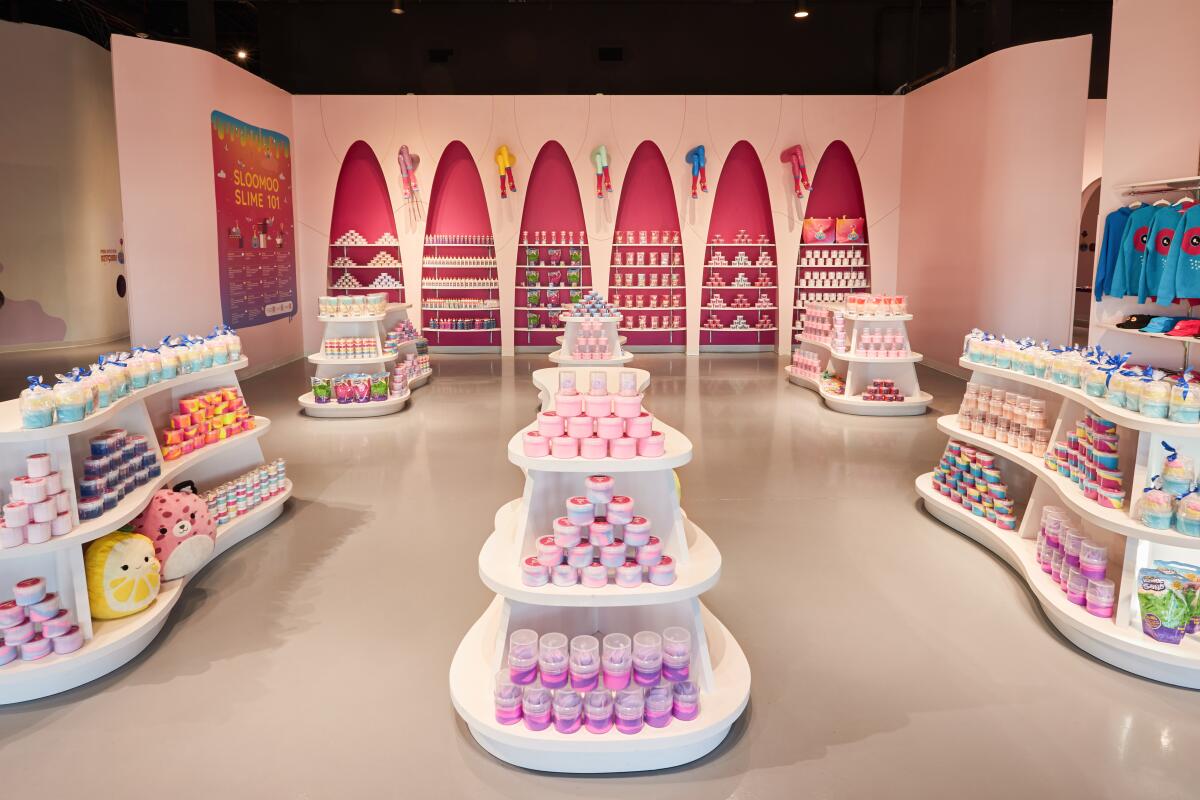
Schiller had her own personal connection to slime, noticing that play allows participants to get out of their head. Vulnerability, for instance, can come naturally in a state of play. Schiller’s eldest daughter has Angelman syndrome, a genetic disorder that can leave children unable to communicate via speech or writing, and her husband has survived multiple bilateral strokes. Slime, she says, has helped foster connections, helping her family better deal with disabilities and stressful moments.
“The great thing that I say about slime is that when you’re playing with slime, you can have difficult conversations or meaningful conversations without them being awkward,” Schiller says, theorizing that when we are in a relaxed, playful state — and focused on a group activity — we feel more at ease. “But you’re not on your device. You’re not distracted. You’re connected to yourself and you’re connected to the other person.”
The game is less about challenges and more about life — why we explore, how we stay optimistic and, most importantly, how we can find awe in unexpected places.
The two founders are eager to talk about their history, noting they don’t want their personal stories divorced from the Sloomoo Institute. Longtime friends, Robinovitz and Schiller have entrepreneurial backgrounds. Robinovitz, for instance, launched a talent firm dedicated to digital influencers, while Schiller has an extensive history in the hospitality and art worlds. Together, they’re proud to note that the Sloomoo Institute workforce is about 10% neurodivergent, as they wanted the spaces to be inclusive and accessible (there are scent blockers available, for instance, for those sensitive to Sloomoo Institute’s smell-heavy focus).
While they are still places full of picture-friendly moments ripe for social media — one area is filled with gargantuan-sized slime-inspired chairs — the two clearly are wary of their slime boutiques going the way of so many so-called “Instagram museums,” spaces that used “immersive” as a buzzword for little more than photo opportunities. The centerpiece of the Sloomoo Institute, perhaps, is a do-it-yourself “slime bar,” where guests can explore 40 colors of slime, 60 fragrances and dozens of textures to build their own take-home creation.
“I know when I was going through my own personal grief, talking to other women who lost their husbands at young ages was really powerful to me,” Robinovitz says. “I had people going through the same kind of grief, and I could see there was potentially a way to live a life when you’re not in pain 24/7. It makes our brand important. This brand wouldn’t mean anything without the hardship. It’s not just a fun candy-colored universe with cute things.”
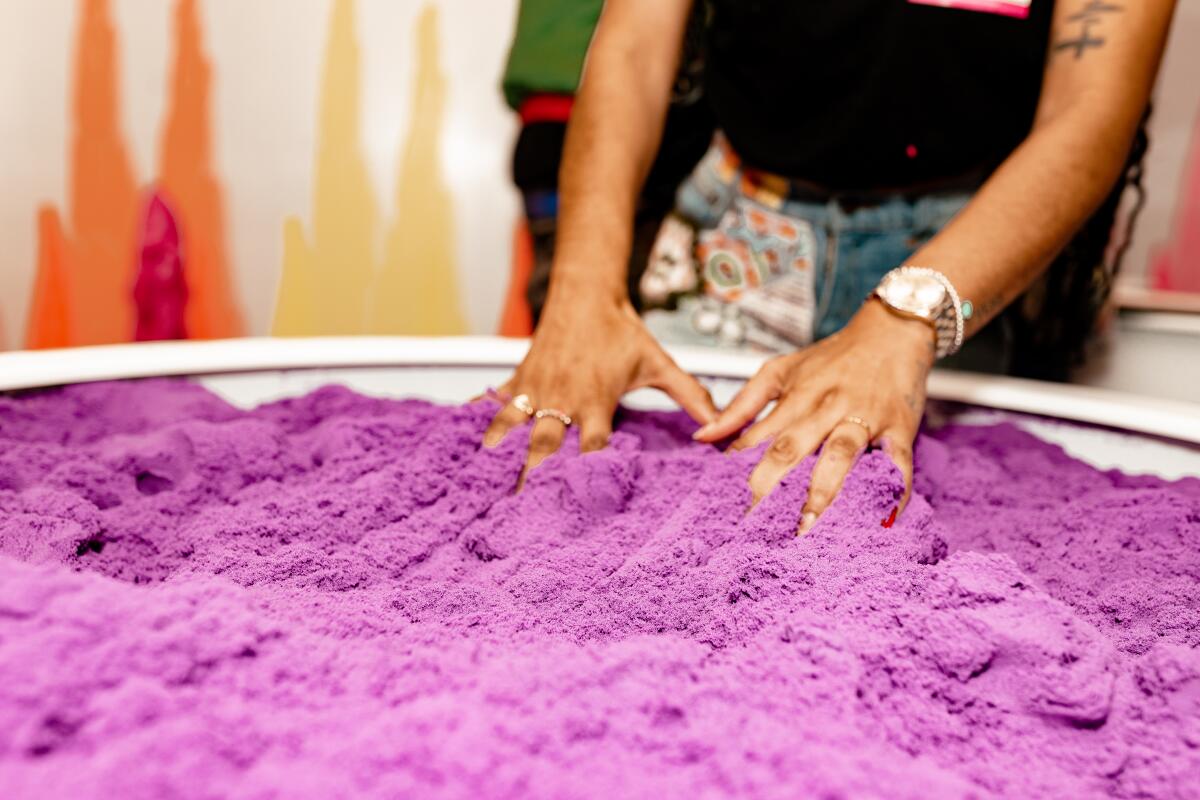
That’s not to say Sloomoo Institutes are purely mindful places for serious play, though there are references to the science of slime and what chemical mixtures may result in a substance that’s more sticky or more bubbly. With a contemporary, space-age sheen — Robinovitz and Schiller stress they designed the spaces to be inviting to adults — Sloomoo Institutes allow for unexpected moments to occur: the sensation, for instance, of walking barefoot on slime, or ASMR-focused installations that allow guests to experience the pleasing, tingling sound sensations of slime.
Well, mostly pleasing. One of the ASMR sounds asks guests to imagine what it sounds like when slime farts.
“It’s a whole fart soundtrack,” says Schiller. “It’s loved by kids and adults.”
Play may have rejuvenating powers, but no one said it need always be sophisticated. Sometimes the best healing prescription may be to simply giggle like an 8-year-old.
More to Read
It's a date
Get our L.A. Goes Out newsletter, with the week's best events, to help you explore and experience our city.
You may occasionally receive promotional content from the Los Angeles Times.

